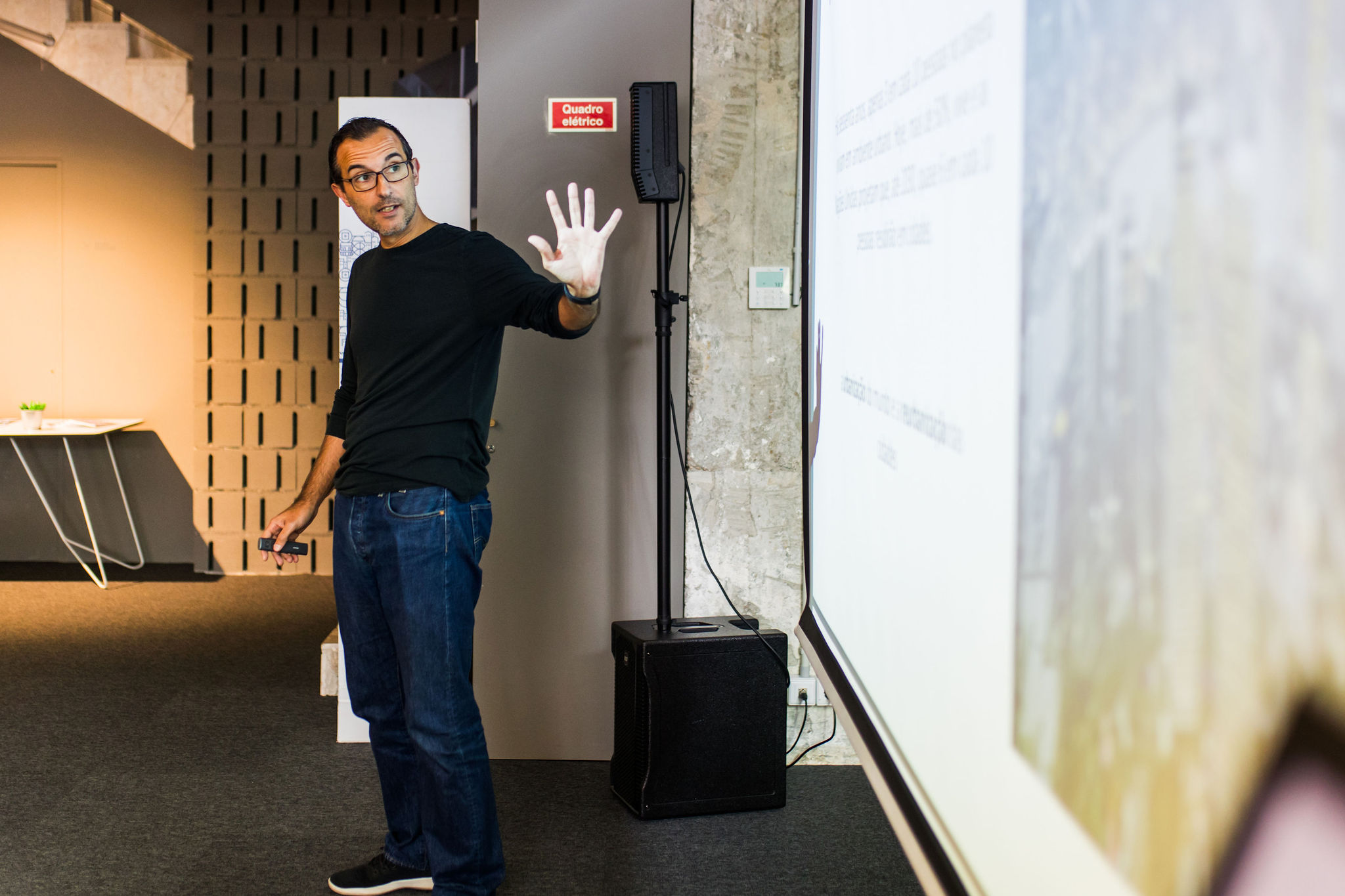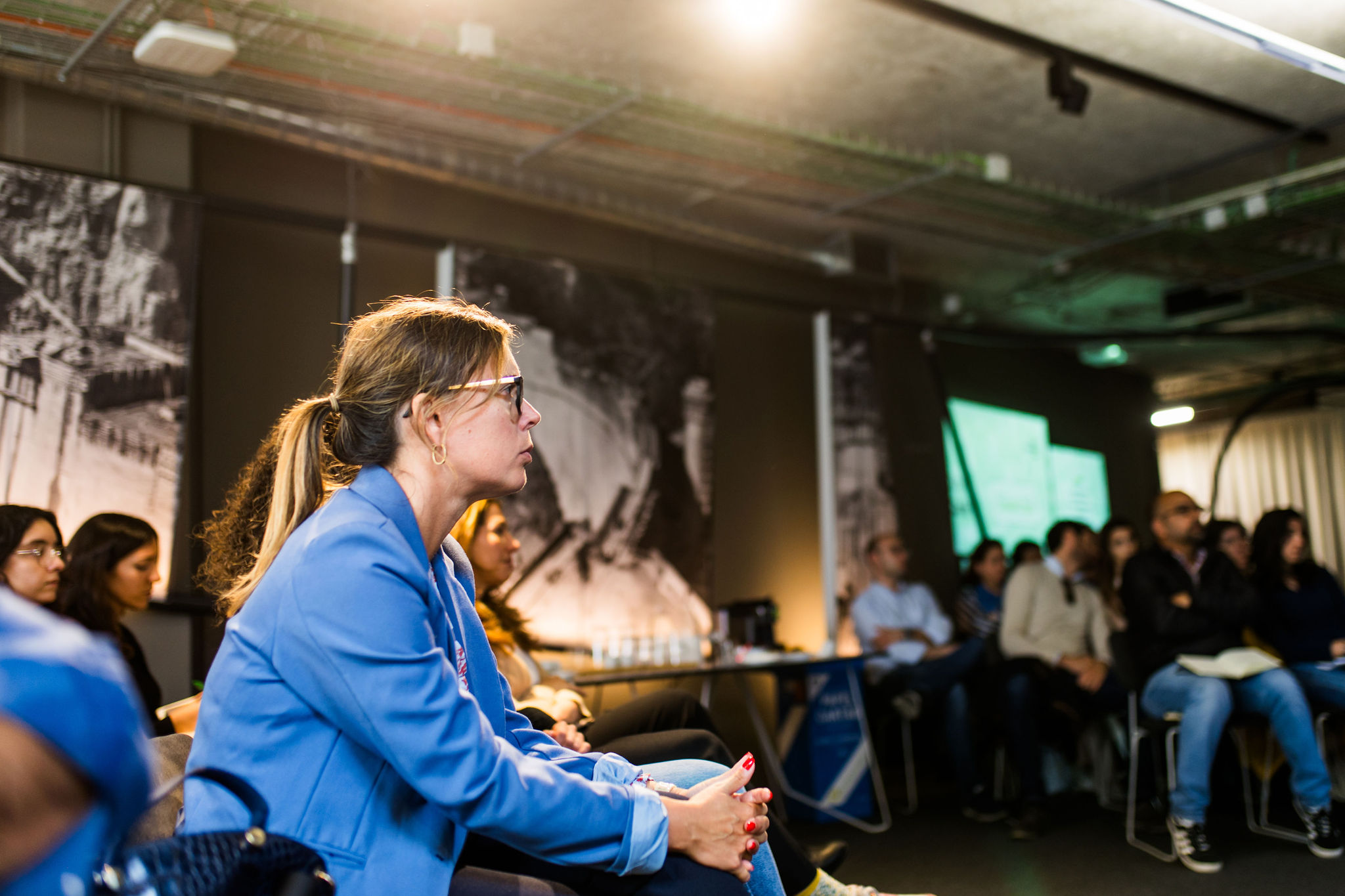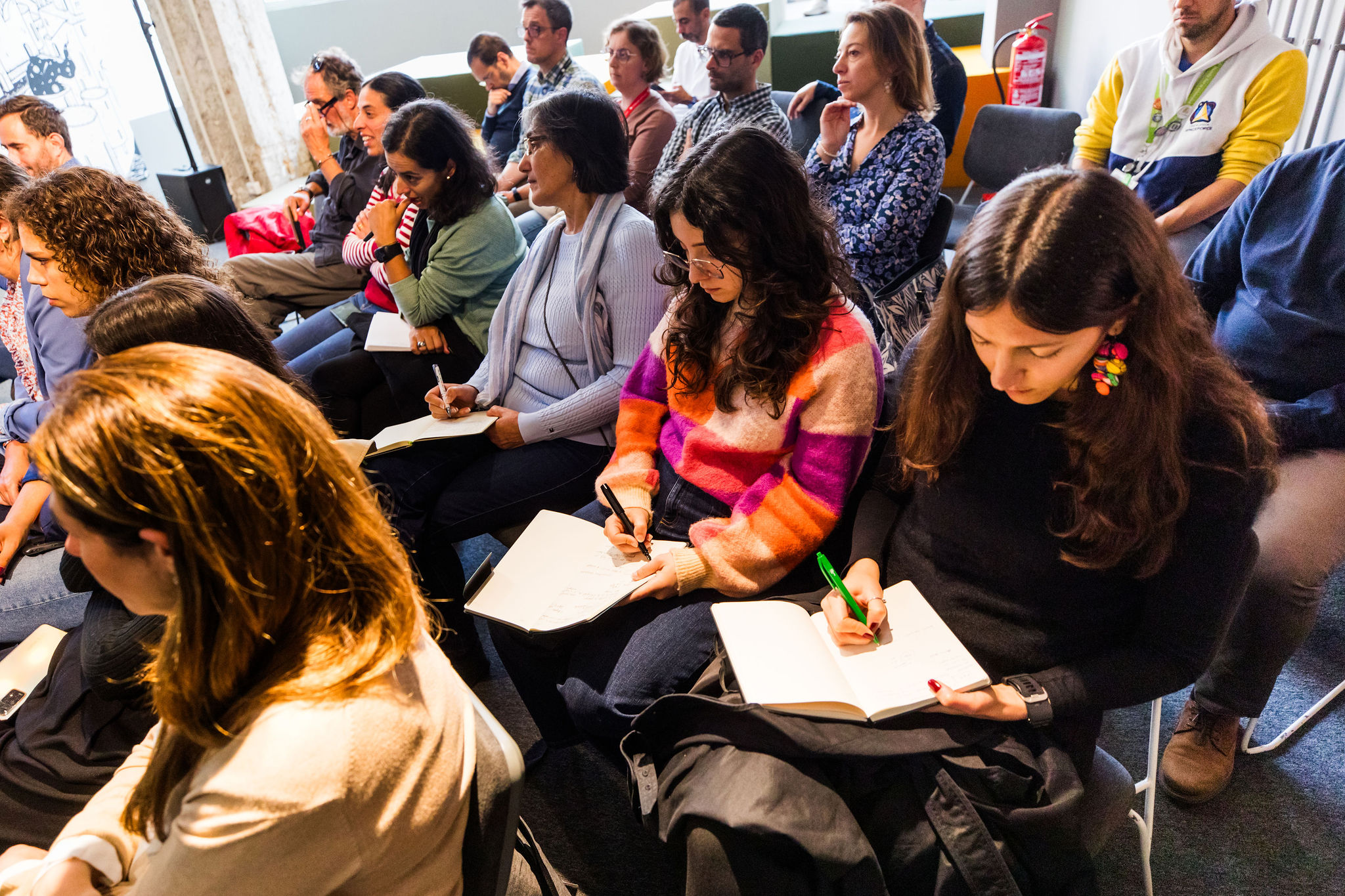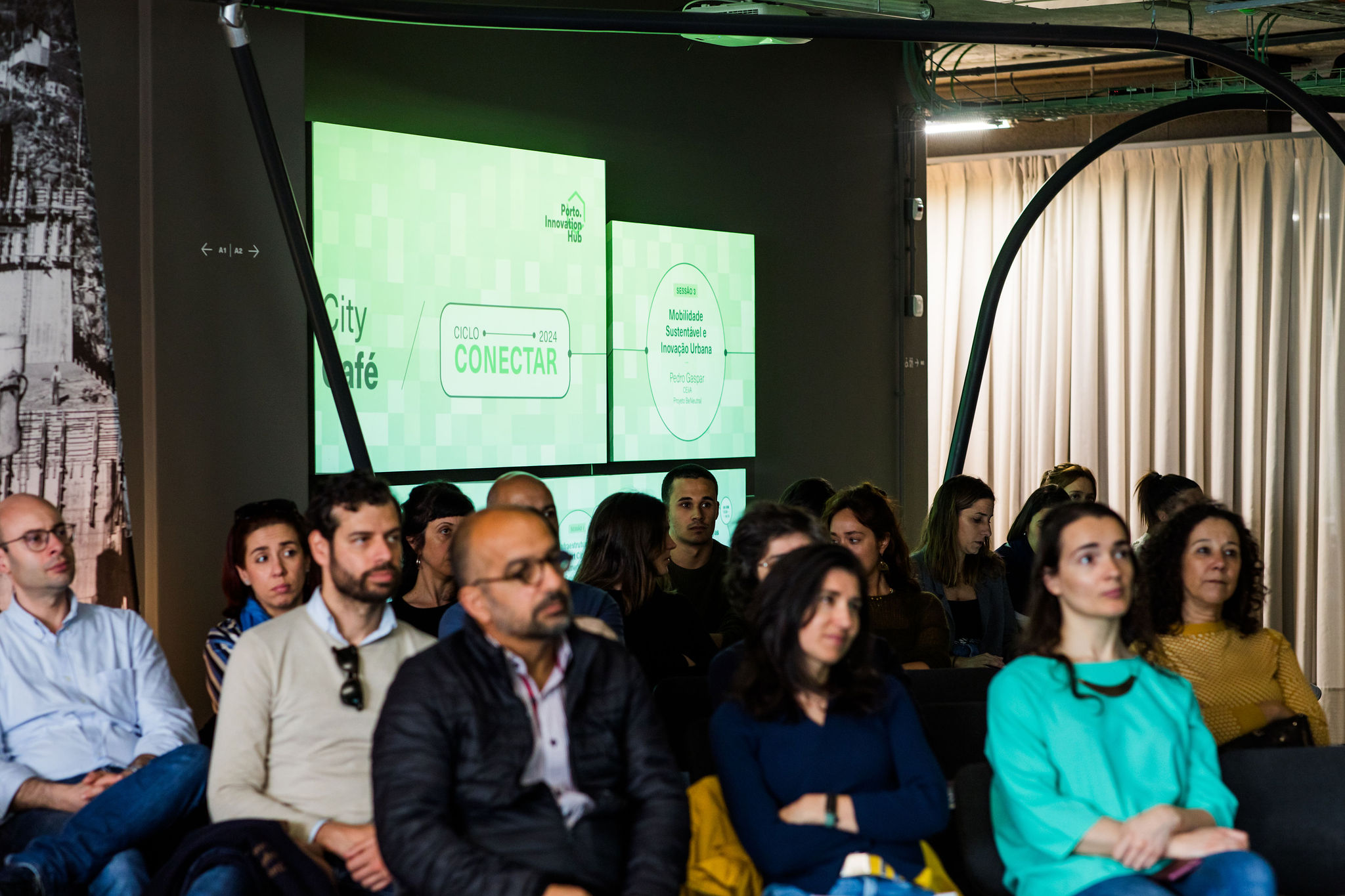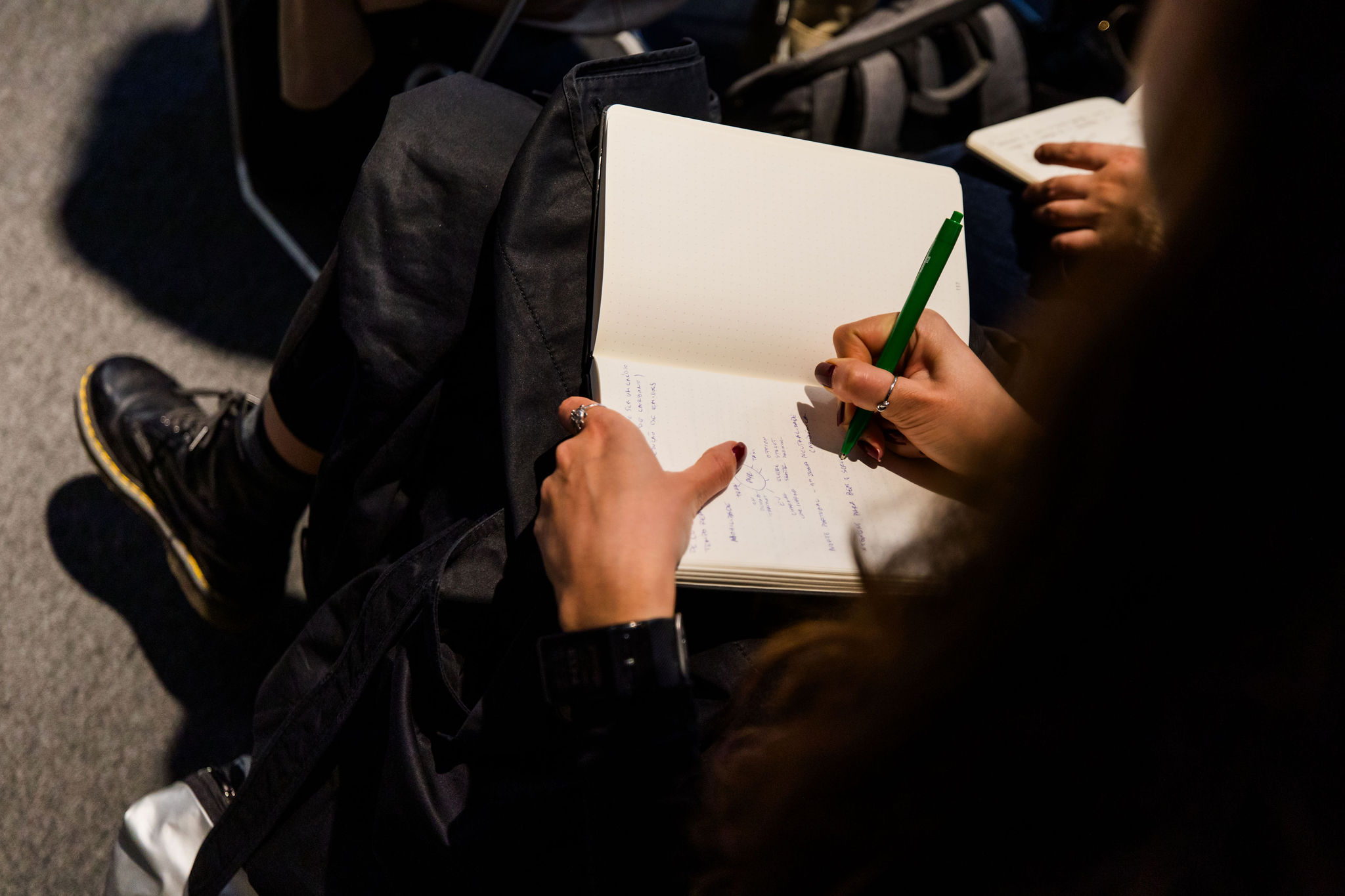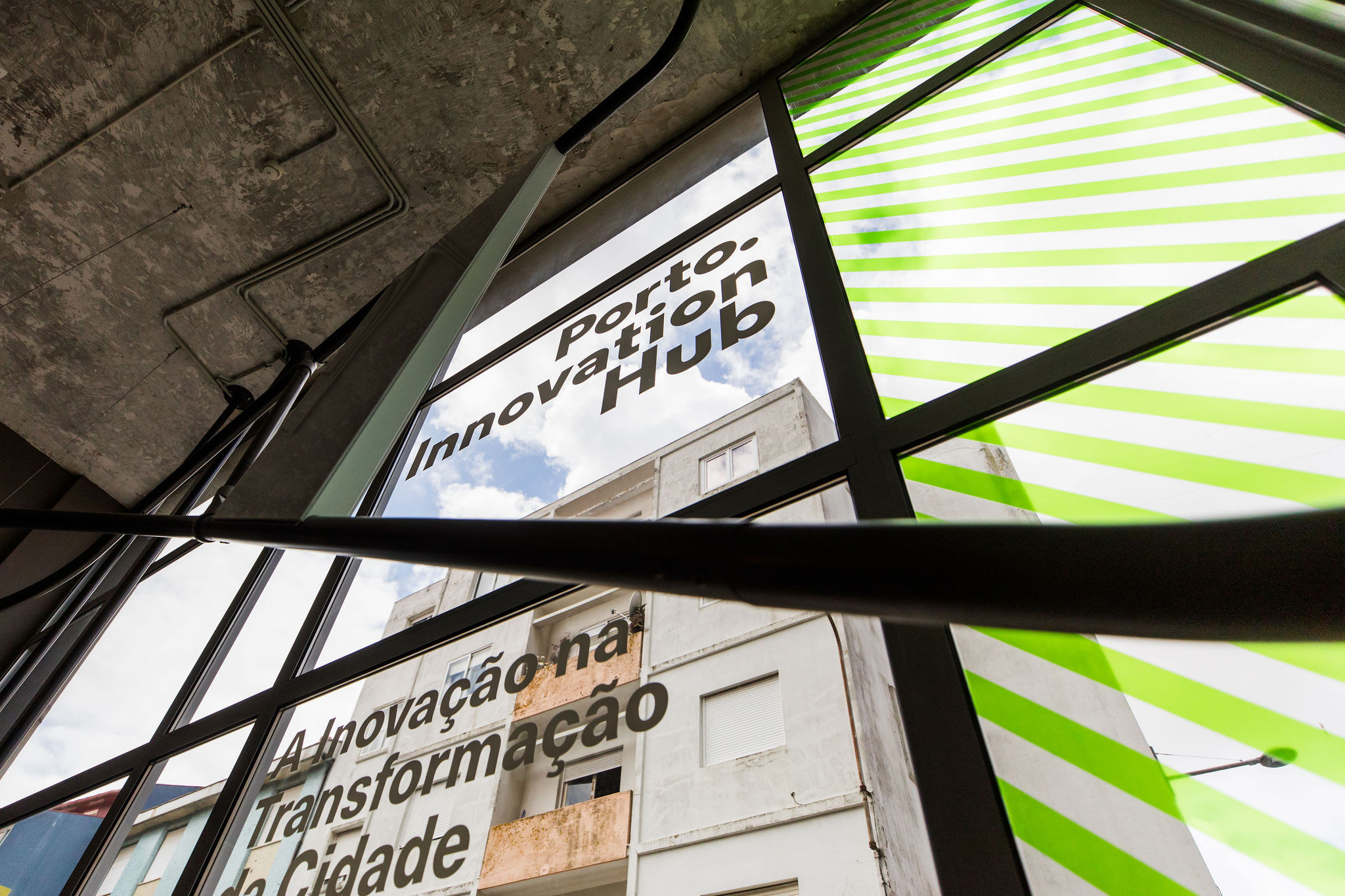City Café accelerates towards carbon neutrality through innovation, with Pedro Gaspar
Last Tuesday, City Café welcomed Pedro Gaspar, Director of New Business Technologies at CEiiA, a centre for innovation and product development. With a successful track record as a founder and product innovator in sectors such as Telecoms, Fintech and Energy, mobility and climate change are now his main focus.
Pedro Gaspar began his presentation by emphasising the urgency of his mission: ‘We are facing what is the greatest societal challenge: to reduce 45% of the world’s carbon emissions in 6 years’.
For this to happen, it is necessary to talk about the important role of individuals and cities. While recognising that the main polluters include oil and cement companies, the speaker highlighted the significant role that individuals and cities play. He stressed that alternative solutions can minimise the impact of these major polluters, but without individual effort, technological advances alone cannot achieve the desired results.
Thus, accelerating change will only be possible by considering two fundamental vectors:
1. Demographic change
Generation Z is emerging as a powerful force for change. With 2.4 billion people, this generation is expected to represent 27% of the global workforce by 2025. Having grown up in the midst of climate change, pandemics and social injustice, they are committed to creating a more equitable and sustainable future.
2. Speed of innovation
The next 15 years are expected to bring more change than the whole of human history to date. Innovations such as ChatGPT have rapidly transformed everyday life, illustrating the rapid pace of technological advancement. Pedro Gaspar also remarked that although this rapid pace can be overwhelming, it also presents opportunities. The challenge is to ensure that innovations are assimilated and don’t become obsolete too quickly.
The speaker concluded the session by emphasising the importance of market transparency:
‘The market is not transparent at the moment. But we have to move in that direction’.
Throughout the session, the fundamental role of innovation and individual action in achieving carbon neutrality was emphasised. By taking advantage of demographic changes and the rapid pace of technological advancement, agendas like Be.Neutral and organisations like CEiiA are at the forefront of creating a sustainable future.
CEiiA is an engineering and product development centre that conceives, designs and creates products, new technologies and services with a view to a more sustainable society. Operating out of Portugal, CEiiA connects cities, industries and universities around product development programmes in high-tech sectors such as Mobility, Aeronautics and Space.
The session was part of the Be.Neutral Agenda, the Mobility Agenda for Carbon Neutrality in Cities, supported by the Recovery and Resilience Plan (PRR), and the Municipality of Porto and CEiiA are partners in this consortium whose aim is to accelerate the carbon neutrality of cities through mobility products and services developed and industrialised from Portugal.
Stay tuned for the last City Café session of the Conectar cycle on 20 June, with João Peças Lopes and the theme ‘Renewable Energy Technologies’.
This session will take place at the Porto Energy Agency, at 1.30pm, and requires prior registration (the sessions are held in Portuguese).
The City Café is conceived and managed in the context of the municipal initiative Porto Innovation Hub, which is developed by Porto Digital, in direct coordination with the Municipal Directorate for People and Organisation Management.
